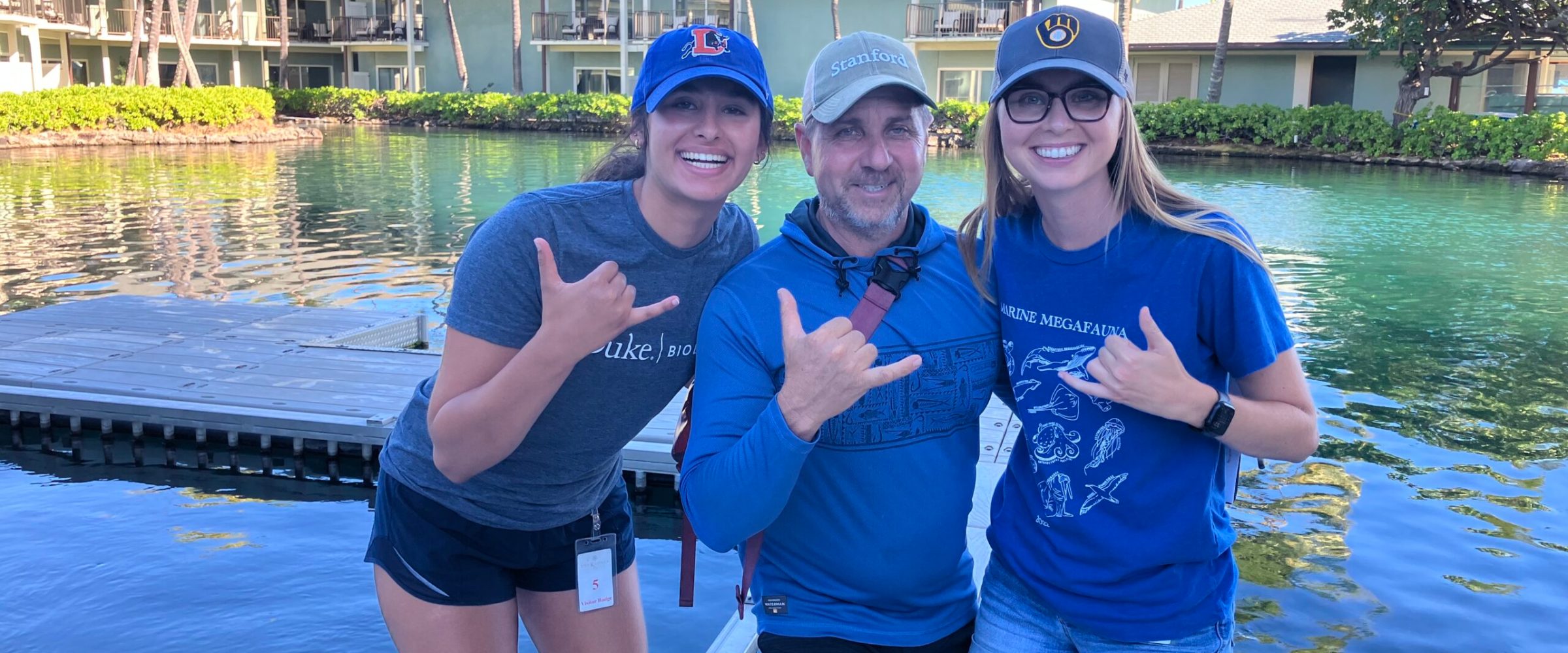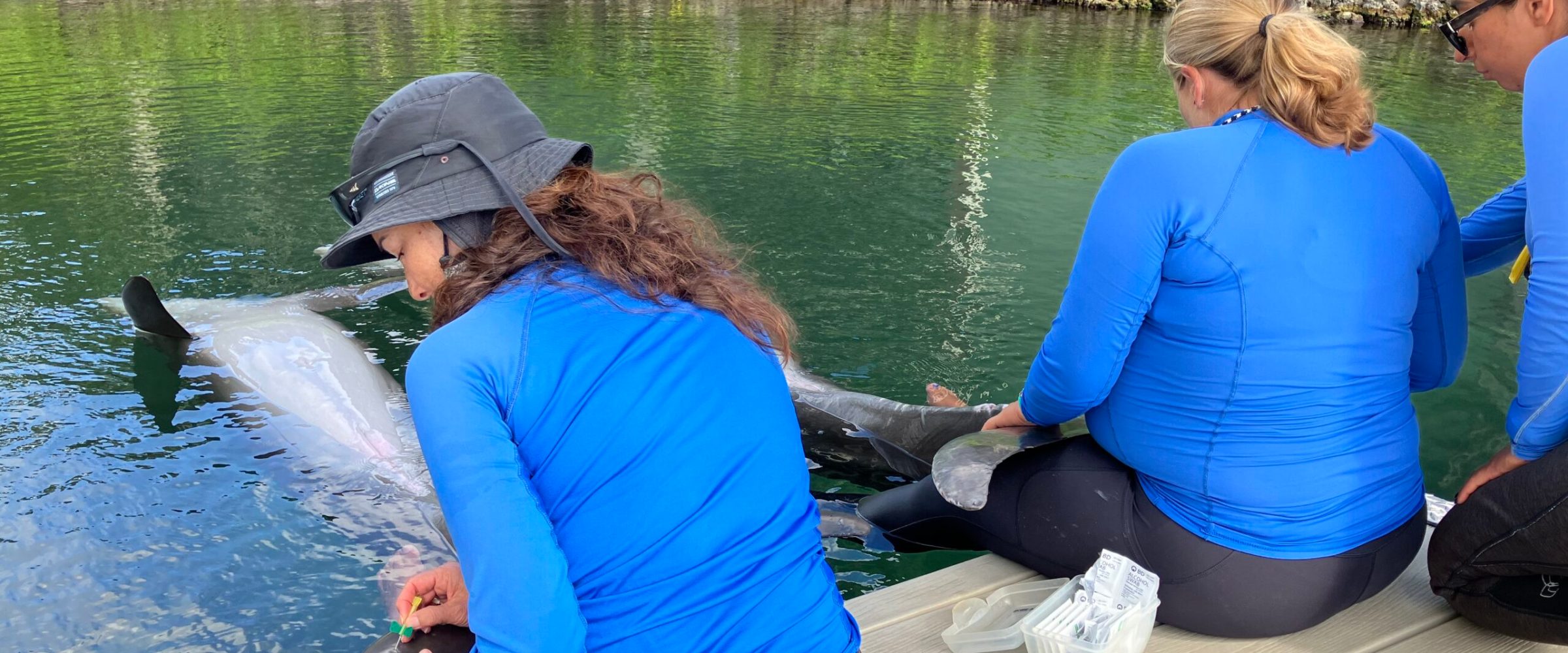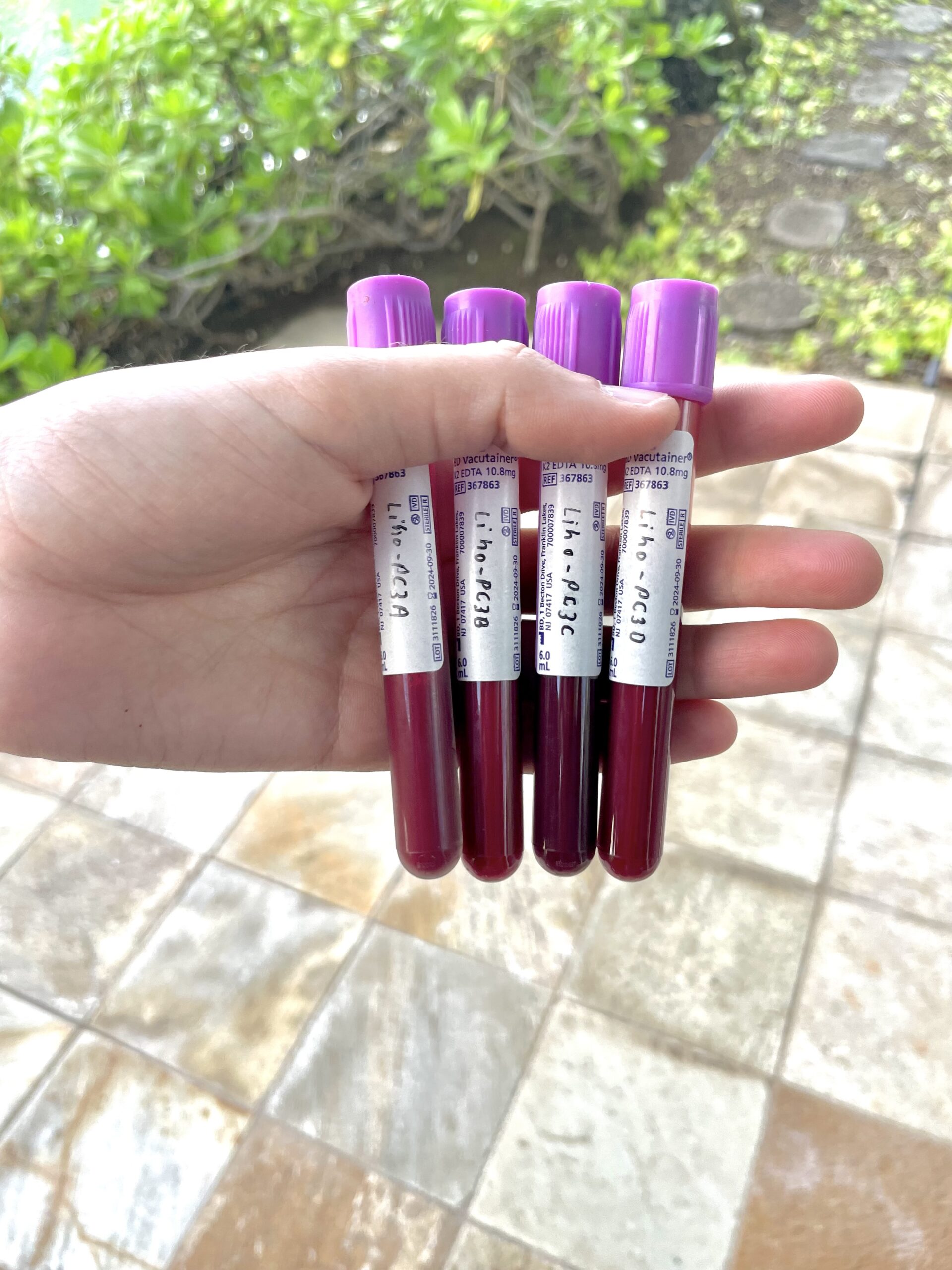AN INTEGRATED PHYSIOLOGY AND PROTEOMICS ANALYSIS TO DEFINE MOLECULAR ADAPTATIONS TO DIVING
LOCATION: HAWAII, UNITED STATES
| Ashley Blawas, PhD Duke University |
Jason Somarelli, PhD Duke Cancer Institute |
Andreas Fahlman, PhD Fundacion Oceanographic |

PROJECT SUMMARY

Duke University
Marine mammals exhibit remarkable physiological changes during diving including a reduction in cardiac output and selective perfusion of tissues with oxygen-rich blood. This response reduces the rate of oxygen depletion, thereby prolonging the capacity to dive while relying on aerobic metabolism. One unexplored mechanism that may support this tolerance is an exaggerated preconditioning response. Ischemic preconditioning occurs when short ischemic events before an extended period of reduced blood flow imbue the tissue protection to injuries typically associated with severe ischemia.

Duke University
Marine mammals, like dolphins, exhibit repetitive diving behavior and therefore may rely on a preconditioning response as one mechanism for tolerating extended breath-holds. In this study we investigated dolphins innate preconditioning response to reveal 1) insights into the protective adaptations to diving in marine mammals and 2) therapeutic targets for hypoxia and ischemia/reperfusion tolerance in humans.

Duke University


